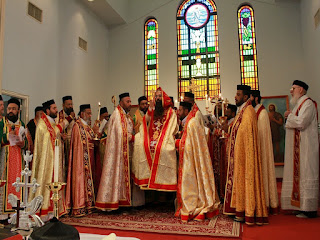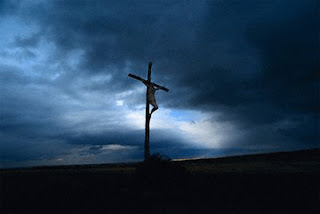You will usually not find me using the word 'denominations', because I feel Christianity was never intended to be a conglomerate of different groups called denominations. The Lord established one Church, and there was supposed to be only one Lord, one faith, one baptism. We were never intended to be "denominational" groups.
Yet, to make my point, I wanted to clarify, what in my mind, should be our approach to other 'denominations". We have our close friends, our blood relatives, our mothers, our fathers, placed in different denominations today. What should be our approach to them?
We have a Lord who prayed for those who shamed him, who bore the sins of those who spat on him, who sacrificed His life to save those who hated Him. That is the only model we have. 'Diakona' meaning 'servant' is a prime duty of every Christian.(this is from where the word 'deacon' has derived from). We have to be servants to those outside the Church. [In this sense, the faction fight is a terrible blot on our generation. I cannot help thinking, we could have done better than this.]
The call is not to be tolerant of other 'denominations', but to love them so much that you serve them. Are we doing that now? By no means! But that should be our goal. We should be there first to help, we should be willing to go the extra mile for them, we should be working hand in hand with them, if needed, we should be able to give even our lives for them. Are we able to do that now? No! But that is what we (myself included) should grow into. Then only do we become Christ like. Tough?!Yes. But this life in Christ was never meant to be easy.
How do we make this happen? How can we spread good will among Christian brethren torn apart by the designs of Satan into different 'denominations'? I see several things we can do at our level.
1) Volunteering Opportunities
Look for areas of volunteering together. For example, if we hear of something the Marthoma Church is doing nearby for volunteering or charity, join ourselves with them. Look for opportunities to work together to serve humanity.
2) Learn from them
I think one of the greatest contributions of the Marthoma Churches to Christianity must be the numerous lively songs. Learn the good songs from them. We have among us our sisters and mothers from the Marthoma background(Note that anyone married into the Orthodox Church, become one body with the Church in every way; it is wrong to think of them any other way), use their help to learn and adopt good things happening in the other 'denomination'. Learn from the perspectives and experiences of those who come into the Church this way. Allow them to blossom, grow and add to the fullness of the Orthodox Church. For example, one very good thing I think we could use is the idea of a parish or edavaka mission in our parish - I have seen this in the Marthoma Church. Learn from the passion for the Lord seen in those in the Pentecostal denomination. Have a passion to learn the Bible.
3) Have joint programs
I have already asked the Managing committee if it might be possible to hold annual song and other competitions between different 'denominations' in the Albany area. We must look for opportunities to come together, do things together, and walk together wherever it is possible.
4) Pray for unity
Denominations is just a sad reality. Pray for the end of all denominations. Pray for the healing power of the Lord to bring unity.
We need workers to work and strengthen the Church today, not people who sit on the fence and criticize. The Church needs volunteers to work in different fields, and one important field to work in is the area of ecumenism. The healing needs to begin. And it needs to begin from within us.
There may be many different areas we can work together, please comment and discuss. Please send feeedback.















































